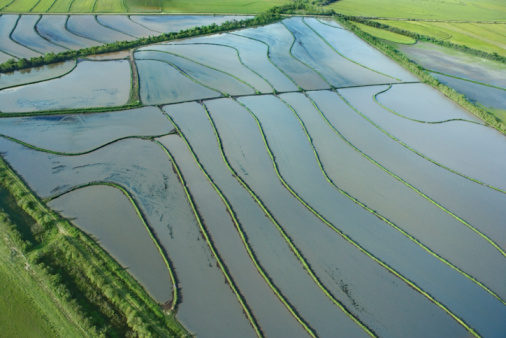Little Rock, AR—The historic floods that moved through the Mississippi Delta region recently had wide-ranging, often devastating effects on agriculture, according to reports. These effects are probably related to the worsening of other economic conditions; damaged or postponed crop plantings have meant lost jobs on farms and a further uptick in food prices already trending high.
Key grain crops such as wheat, corn, rice and soybeans were either damaged or put in jeopardy in many states throughout the region. The Arkansas Farm Bureau, for instance, estimated that over one million acres of crops had been inundated, and put the cost at over $500 million. The organization reported that Arkansas, the nation’s leading rice producer, may have lost upwards of 300,000 acres of the crop.
After cresting in Memphis and progressing southward along the Mississippi River Basin to Louisiana, the flooding left other types of agriculture-related concerns in its wake. The Coast Guard closed a 15 mile stretch along the river on May 17, in an area where winter wheat is stored in grain terminals perched along the river. Without access to the transportation the river affords, local farmers were uncertain where their harvests would end up. Some observers are placing blame on the system of levees and release valves, utilized since the 1920s to divert floodwaters, for much of the damage to agriculture and other private property.
Published in WholeFoods Magazine, July 2011 (online 5/20/11)










